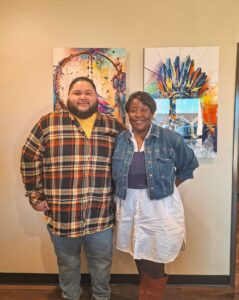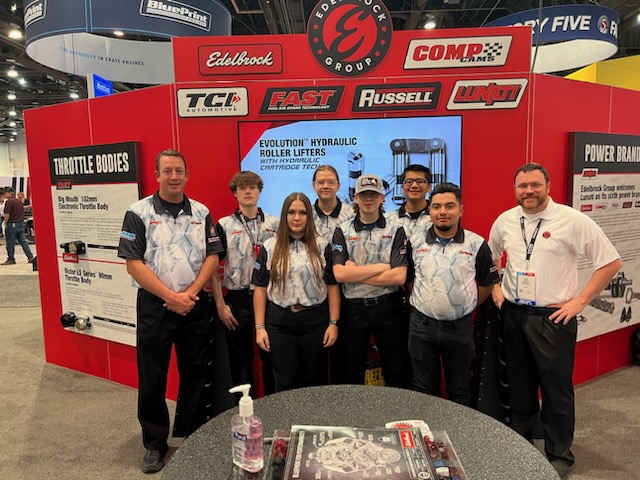
Hot Rodders of Tomorrow: Hands on Innovation at Pontotoc Technology Center
January 29, 2024 by Jessika Leatherbury
By: Sunnie Dawn Baker
 Five high school students stand behind a work bench, their hearts beating with anticipation. They wait for the signal and then spring into action. Working together like a well-oiled machine, they disassemble a Chevy small block 350 engine down to a bare block and crankshaft, reassemble it, and return to their starting position—all in the time of 16 minutes and forty seconds. This kind of achievement requires a lot of hard work, dedication, and practice, but it also involves creativity, problem solving, ingenuity, and innovation. These students are the Hot Rodders of Tomorrow.
Five high school students stand behind a work bench, their hearts beating with anticipation. They wait for the signal and then spring into action. Working together like a well-oiled machine, they disassemble a Chevy small block 350 engine down to a bare block and crankshaft, reassemble it, and return to their starting position—all in the time of 16 minutes and forty seconds. This kind of achievement requires a lot of hard work, dedication, and practice, but it also involves creativity, problem solving, ingenuity, and innovation. These students are the Hot Rodders of Tomorrow.
The Automotive program at Pontotoc Technology Center (PTC) has a long history of helping high school students achieve their occupational goals. After completing this two-year program, which is of no cost to high school students in Pontotoc County, the students have the possibility of certification in eight different areas which cover the gamut of automotive services. The program instructor, Nathan Dial, came to PTC in 2016. After his first year, David Lassiter, the former superintendent of PTC, found out about the Hot Rodders of Tomorrow and asked Dial if he was interested. While Dial was skeptical at first, he decided to give it a try and, since then, has never looked back.
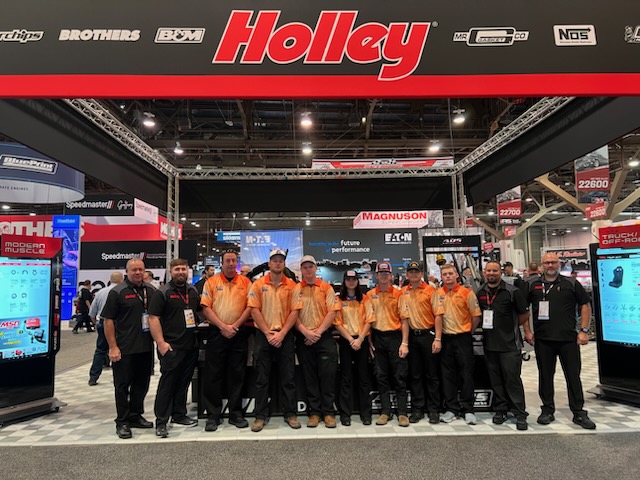 Since the program began at PTC in 2017, Dial takes two teams of five to regional qualifying competitions. They are eligible to go to three different regional qualifiers: Dallas, Tulsa, and Hereford, TX. If a team can disassemble and reassemble the engine within a total time of 32 minutes, including penalties, they advance to the national competition in Las Vegas. Every team has qualified to go to Las Vegas. In Las Vegas, the top five teams advance to the finals in Indianapolis, competing against the top five from a similar competition held there. These teams form the Elite Ten who then vie for the win. For the last four years in a row, PTC has had a team advance to the Elite Ten, securing positions at 2nd, 3rd, 8th, and 10th out of over 200 teams nationwide.
Since the program began at PTC in 2017, Dial takes two teams of five to regional qualifying competitions. They are eligible to go to three different regional qualifiers: Dallas, Tulsa, and Hereford, TX. If a team can disassemble and reassemble the engine within a total time of 32 minutes, including penalties, they advance to the national competition in Las Vegas. Every team has qualified to go to Las Vegas. In Las Vegas, the top five teams advance to the finals in Indianapolis, competing against the top five from a similar competition held there. These teams form the Elite Ten who then vie for the win. For the last four years in a row, PTC has had a team advance to the Elite Ten, securing positions at 2nd, 3rd, 8th, and 10th out of over 200 teams nationwide.
This is an amazing feat, especially because, in many ways, the PTC team is at a disadvantage. They don’t have as much time with their students as some other schools. As a Careertech Center, Dial only has the students during their junior and senior years of high school. Other teams have this program integrated into their high school, allowing them to work with their students for four years instead of two. Also, each coach is allowed to have two teams compete. PTC has one coach, whereas others may have more. Dial notes that some schools have as many as eight teachers, which gives them the possibility of taking 16 teams. Also, these other schools have more students to choose from. Dial says, “They have a pool of two hundred or more to make these teams with and we have thirty.” However, despite the disadvantage, they still come out on top, and a large part of that is a testament to their hard work and determination, but also their ingenuity and creativity.
When the team first started, their total time was about 49 minutes. Now they can do it in almost a third of that time. There are many reasons for their success. These students will come in on weekends to practice. They come in on Spring Break. Some evenings, if they have basketball or baseball games, they will practice together from 9:00-11:00 in the evenings. They are committed to the competition and they are committed to their team. However, their determination is only one piece of the puzzle. The other important factor in their success is their ability to be innovative.
Because the Automotive program is at PTC, the team also accesses other departments and uses this to their advantage. One of the most significant contributors to their success is the Fab Lab, which Jim Lawson, the Assistant Director for Business and Industry at PTC, runs with Santi Turner. The Hot Rodders of Tomorrow program collaborates with the Fab Lab, Lawson, and Turner to design tools and devices that expedite and streamline their tasks. The students are encouraged to think outside the box and analyze their tasks. They discern what would make the process more efficient and then they tell Lawson. The Fab Lab takes their ideas, prints a prototype, and enables them to experiment and decide if it will work or if it needs improvement. Lawson says, “We use a term in design as ‘fail fast’ which means we may make a tool that is very crude to see if it actually works to prove it as quickly and inexpensively as possible.” They designed trays to hold spark plugs in the correct way, making it faster to lube them all appropriately. They designed a tower that holds all the pistons during the competition, and it has undergone multiple modifications, as well as figuring out how to make it travel-ready because it couldn’t go on a plane. If they can dream it up, The Fab Lab can make it a reality. When they go to competition, all the other teams are amazed at the different tools that the PTC team; Snap On has even put two of these tools in production—tools that were designed by the PTC students competing in Hot Rodders of Tomorrow.
In addition to the support from the Fab Lab, the students also work with the welding department or send their ideas off to the machine shop. The collaboration between departments extends far beyond the technical application of tools, though. This past year, Dial selected a student as an alternate who preferred videography work. She recorded videos of the top-performing teams and then provided the footage to Tina Davis’s videography students, who could edit the footage to isolate specific roles for team members. Similar to a football team watching game footage to improve, these students, through this collaborative effort, can compete more effectively using similar tools.
The Hot Rodders of Tomorrow program enables these students to gain new and valuable experiences while also offering scholarships to advance their automotive training. Many of these students have never flown on an airplane, navigated TSA, or checked into a hotel. Dial enjoys guiding these students through new experiences and broadening their perspective of the world. As they learn to build an engine, they are also learning how to build their own lives.
Sign up to receive more news from the Ada Jobs Foundation HERE!
Written by
Jessika Leatherbury
You may also interested in:
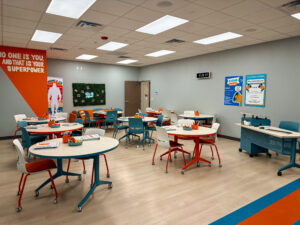
BUILDING FUTURES: WORK READY ADA CELEBRATES ITS FIRST YEAR
BY: CATHLENA SPENCER Just one year ago, Work Ready Ada, a new employment readiness program, was launched in partnership with Pontotoc Technology Center (PTC). The program, funded by Oklahoma Human
AI IN EDUCATION: A CONVERSATION WITH VINAYAK MITTY
BY: SUNNIE DAWN BAKER One of the areas in technology with the most potential for entrepreneurial growth is Artificial Intelligence (AI). AI is increasingly shaping every part of our lives,
Adapt and Overcome: Allison Poe’s Recipe for Resilience and Growth
By: Sunnie Dawn Baker Allison Poe has always followed her feet. She waits for the signs to appear and, once she recognizes them, she travels that path, and has never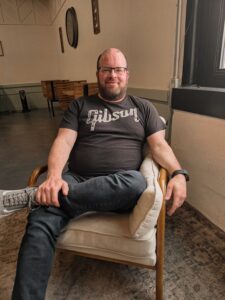
Jeff Warren: A Life in Sound, Vision, and Storytelling
By: Sunnie Dawn Baker When Jeff Warren got involved in the Houston music scene as a teenager, he had no clue where his path would lead. Now, nearly thirty years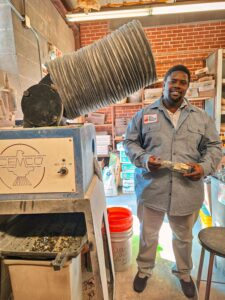
From Pitch to Progress: ECU's Glass Recycling Program Turns Waste into Opportunity
By: Sunnie Dawn Baker In 2018, Dr. Christine Pappas competed in Ada Jobs Foundation’s Big Pitch Competition by promoting grinding glass bottles into sand. She won the Big Pitch that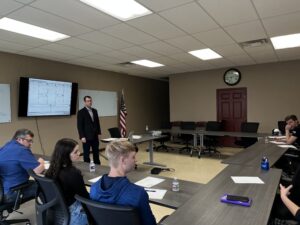
The Importance of Customer Discovery: Know Your Audience and Know Your Market
By: Sunnie Dawn Baker Entrepreneurs and small business owners must consider many factors to achieve success, with their target market being one of the most crucial. Sometimes, when people are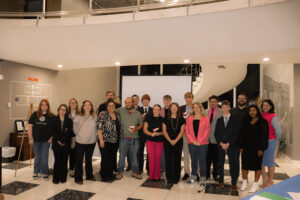
What Does Economic Development Do for You? The Significance of the Economic Multiplier
By: Sunnie Dawn Baker People often find the term “economic development” vague and confusing. Understanding how economic development works and benefits the community can be challenging. Though there are many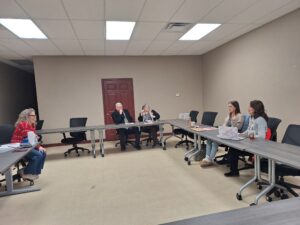
Helping Entrepreneurs One Workshop at a Time: Lauri Rowe and QuickBooks for Small Businesses
Entrepreneurs tend to be filled with passion and big ideas. They have found a solution to a problem they see in the world, and they barrel ahead, excited for their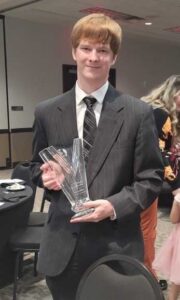
Hunter Cook: Technology, Entrepreneurship, and the Written Word
By: Sunnie Dawn Baker Hunter Cook started writing when he was seven years old. At first, he wanted to write comic books, but then he realized he couldn’t draw. He